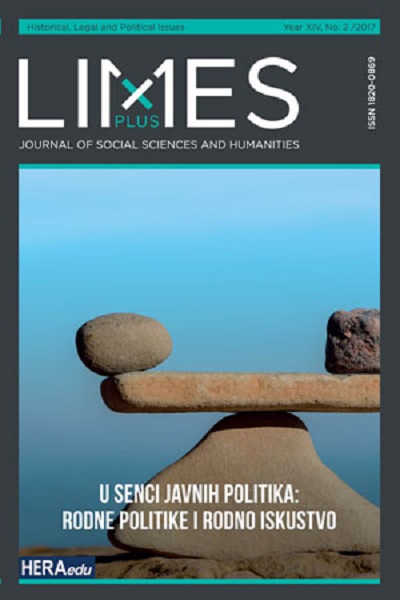Ego i alteri: socijalna analiza ličnih mreža podrške majkama u srbiji
Ego and Alters: Social Analysis of Personal Support Networks to Mothers in Serbia
Author(s): Isidora Jarić, Valentina SokolovskaSubject(s): Gender Studies, Family and social welfare
Published by: HESPERIAedu
Keywords: personal network; support network; resilience; mothers
Summary/Abstract: The paper tries to reconstruct the personal support networks supported on which mothers in Serbia reckon on. Personal support networks have found in the focus of the analysis because of its importance within the whole range of different aspects of everyday reality that directly influence the ability of the person in the focus of the analysis to adapt to the various environmental challenges and to respond to them. The analysis was carried out by the method of network analysis (Agneessens, Waege i Lievens 2006; Hlebec i Kogovšek 2013). The instrument is divided into three sections that relate to the provision of different types of support: (a) emotional, (b) instrumental and (c) social. On the basis of the collected data we were created models of personal social networks that the actors/respondents establish with the alters. Based on the analysis of the grouping according to the different characteristics of the respondents, we distinguished those who showed the greatest and most obvious differences: (a) the level of education, (b) the number of children, and (c) the age of respondents during the birth of the first child. The presented analysis shows that women/mothers in Serbia mainly rely on: (a) other women, most often to their mothers and best friends, and then sisters, daughters, mothers-in-law, friends and neighbors; (b) Generally speaking, the list of alters to which women most often rely on shows that they are mainly members of their families, more often primary families (mothers, sisters, daughters, fathers, brothers, sons), and considerably less members of the partner’s family (mothers-in-law ) or persons outside the family (neighbors); (c) irrespective of the relevant differences between respondents (such as the level of education, the number of children or the age at the time of the birth of the first child), mothers receive the support from the same and/or similar alters. This is confirmed by the findings that testify of a similar structure of support networks in all groups of respondents that were the subject of the analysis. In general, the analysis indicates the existence of a tenacious pattern that points to the relative stability of the structure of personal support networks that very little vary in relation to education, the number of children, and the age of respondents in the moment of birth of their first child.
Journal: LIMESplus
- Issue Year: 2017
- Issue No: 2
- Page Range: 153-172
- Page Count: 20
- Language: Serbian

